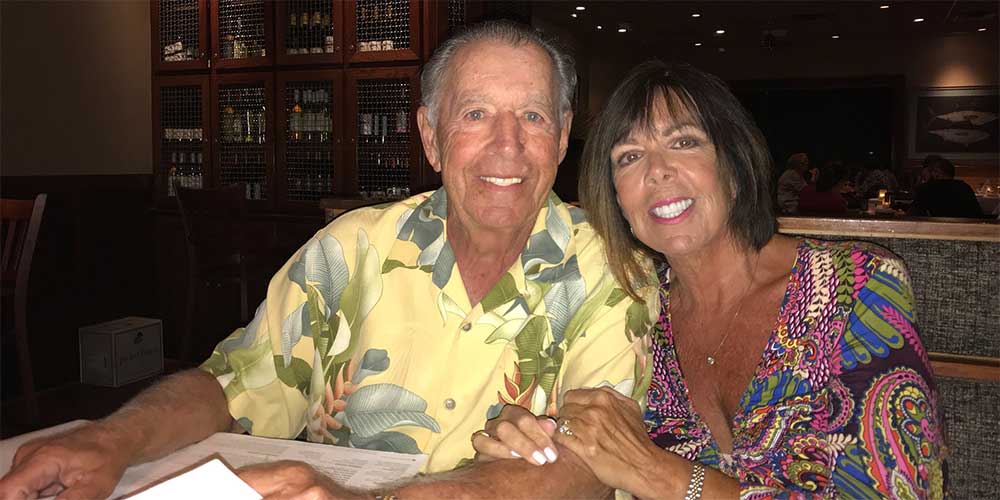
Karen Scolamiero had been experiencing equilibrium and vision problems for years when, while showering one morning in December 1997, she realized she couldn’t feel the water on her head. She went to her local hospital, where she was diagnosed with multiple sclerosis (MS). During a follow-up visit, she was advised to take injectable medication to treat the neurodegenerative disease.
For Scolamiero, the diagnosis was devastating, conjuring up images of life in a wheelchair. In January 1998, she decided to seek a second opinion from David Michael Dawson, MD, a senior neurologist at Brigham and Women’s Hospital.
After evaluating Scolamiero’s case, Dawson, who has since retired, assured her she had a very mild case of relapsing remitting MS. Rather than prescribing medication, he recommended closely watching her symptoms and scheduling six-month checkups. It’s an approach that’s worked well for Scolamiero, who has been symptom-free since 1999.
I am so grateful for the care, for everything the Brigham’s done for me, the fact that I’m well. I said if I ever come back from this, which I have, I will give back.
“Along with his expertise in MS, Dr. Dawson brought a humanity and kindness,” Scolamiero recalls. “He didn’t instill panic. Instead, he gave me hope.”
Grateful for Dawson’s care, Scolamiero and her husband, Ed, named the Brigham as a beneficiary in their will to support MS research at the Ann Romney Center for Neurologic Diseases.
“I am so grateful for the care, for everything the Brigham’s done for me, the fact that I’m well,” says Scolamiero, who now lives in Florida. “I said if I ever come back from this, which I have, I will give back.”
The couple’s bequest to support MS research was also inspired by Scolamiero’s participation in two MS research studies at the Brigham under the direction of Howard L. Weiner, MD, co-director of the Ann Romney Center for Neurologic Diseases at the Brigham. Through that experience, Scolamiero saw firsthand the commitment of the Brigham’s research teams.
“I was impressed to see what they have accomplished and what money can do to accelerate the research for a cure and improved treatment,” she says. “I’m really at peace knowing I will be able to help others with MS after I’m gone.”
Bequest giving
Create a lasting impact by making a legacy gift in your will or trust.
Supporters like you
Read more stories on supporters like you.
